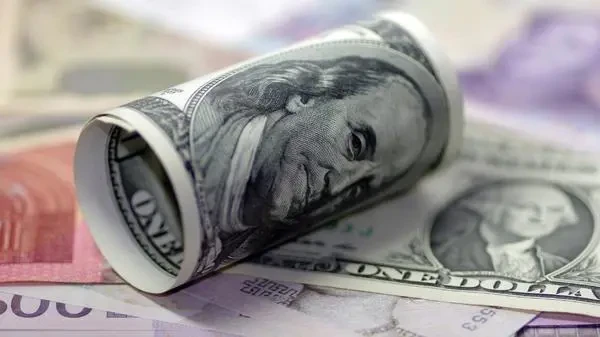The Next "Black Swan": "Tariff Refund Mega Deal", Wall Street and Individual Investors Are Placing Bets
Individual investors are participating in this game through emerging prediction markets such as Kalshi and Polymarket.
Individual investors are participating in this game through emerging prediction markets such as Kalshi and Polymarket.
Written by: Ye Zhen
Source: Wallstreetcn
A legal showdown that could force the U.S. government to refund tens of billions of dollars in tariffs is giving rise to a unique speculative market.
U.S. Treasury Secretary Janet Yellen recently admitted in a media interview that if the Supreme Court rules that some of the Trump administration's tariffs are illegal, the Treasury Department may have to refund "about half of the tariffs." She described this as a "terrible" blow to the Treasury. When asked if the government is prepared to issue refunds, Yellen responded, "If the court says so, we have to do it."
This statement comes after two lower courts ruled that the Trump administration lacked legal authority under the International Emergency Economic Powers Act to impose certain tariffs. The case is now before the Supreme Court, with oral arguments scheduled for November 5.
According to data from U.S. Customs and Border Protection, as of August this year, more than $70 billion in disputed tariffs had been collected. If the policy is ultimately overturned, the resulting chain reaction will have far-reaching impacts on U.S. finances and importing businesses.
Faced with enormous uncertainty, the market has not waited. From structured products on Wall Street to online prediction platforms, a "pricing" mechanism around the outcome of the tariff ruling has already formed. Investors are betting real money on whether the U.S. Treasury will carry out an unprecedented "massive tariff refund."
Wall Street's Big Bet: Building a Massive Tariff Refund Claims Market
Wallstreetcn previously mentioned that for professional investors on Wall Street, this bet is unfolding in a more traditional and large-scale financial transaction format.
According to media reports, investment banks including Jefferies and Oppenheimer are actively brokering a special type of transaction: connecting importers who have paid high tariffs with investors seeking high returns (mainly hedge funds).
The core logic of the transaction is that cash-strapped importers sell their future "potential" tariff refund claims to investors at a steep discount. An Oppenheimer pitch document notes that this arrangement can "eliminate outcome uncertainty and provide immediate guaranteed payment without waiting for the court's final decision."
Reports indicate that investors typically buy claims at 20 to 40 cents per $1 of claim value. This means that if the Supreme Court rules in their favor, they will receive returns several times their original investment.
Most transactions range from $2 million to $20 million, with a few exceeding $100 million. Oppenheimer's materials show that its team has arranged over $1.6 billion in similar transactions around early tariffs since 2021.
Notably, Cantor Fitzgerald, the investment bank run by the son of U.S. Commerce Secretary Lutnick, also considered arranging such transactions earlier this year. However, according to media reports in August, the company halted the business before executing any deals.
Retail Investors' Calculations: Small Bets on Prediction Markets
Unlike institutional investors who engage in customized transactions worth millions of dollars, individual investors participate in this game through emerging prediction markets. On platforms like Kalshi and Polymarket, anyone can place small bets on questions such as "Will the Supreme Court uphold the tariffs?"
The contract prices on these platforms are seen as a direct reflection of the market's perceived probability of an event. According to Bloomberg columnist Matt Levine, the relevant contract is trading at about 40 cents, which translates directly to the market-implied probability—that is, about a 40% chance that the Supreme Court will uphold the tariff policy.
However, the limitations of this approach are also quite obvious.
So far, the total trading volume of related contracts on Kalshi is less than $250,000, and on Polymarket, less than $400,000. Analysts point out that these markets have extremely low liquidity and cannot meet the needs of enterprise-level investors looking to hedge millions of dollars in risk exposure. Therefore, in this event, prediction markets serve more as a barometer of public opinion or sentiment rather than an effective risk transfer tool.
Success or Failure Hinges on the Supreme Court's Ruling
The outcome of all bets ultimately depends on the Supreme Court's decision.
Analysts believe that the court's ruling will depend not only on the interpretation of the law but also on the justices' views on executive power. Trump himself has always favored the revenue brought by tariffs and believes that being forced to refund would be a "disaster" for the country.
Even if the Supreme Court ultimately rules the tariffs illegal, the refund process will not be smooth. Customs and trade experts warn that returning the funds will be a "logistical nightmare." U.S. Customs and Border Protection only refunds registered importers, and for the many small and medium-sized importers who handle customs clearance and tariff payments through commercial carriers such as FedEx and UPS, providing detailed documentation for each shipment to apply for refunds will be an extremely complex process.
This also adds another layer of execution risk for investors who have already purchased claims.
Disclaimer: The content of this article solely reflects the author's opinion and does not represent the platform in any capacity. This article is not intended to serve as a reference for making investment decisions.
You may also like
Hot Money Returns to IC0: The Next Batch of Winners May Be Here

S&P gives Strategy a B-: The "old system" that can't be awakened

From Spotlight to the Sidelines: The Bubble Burst of 8 Star VC-Backed Projects
Is it because the model is unsustainable, the ecosystem has yet to launch, the competitors are too strong, or is there simply insufficient market demand?

Since the U.S. legislation in July, stablecoin usage has surged by 70%!
After the "Genius Act" was passed in the United States, stablecoin payment volumes surged, with August transactions exceeding 10 billion USD. Nearly two-thirds of this amount came from inter-company transfers, making it the main driving force.

